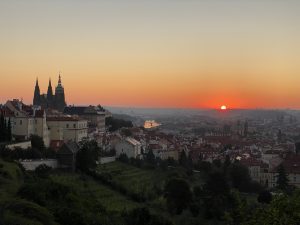Words on the Word
The Nordic Bishops’ Conference 2021
Wisdom 6:9-21: Wisdom is radiant and unfading.
1 Peter 1:3-6, 2:21-24: Christ suffered for you, leaving you an example.
Matthew 16:24-27: He who loses his life for my sake will find it.
‘What does it profit a man’, asks the Lord, ‘to gain the whole world if he forfeits his own soul?’ The question is relevant for us. We are among those who wish to gain the whole world—for the kingdom of heaven, of course; but even the noblest purpose can potentially be poisoned. If it can be claimed today, to my mind not wrongly, that the Catholic Church is in the throes of its most profound crisis since the 16th century, it is not chiefly because good believers are surrounded by wicked others, but because commissioned carriers of the Good News have terribly compromised its proclamation; and surely it is impossible to do others such harm without beforehand, somehow, having forfeited one’s own soul?
How do we protect ourselves against tendencies of self-destruction? We must be able to pasture as sheep among wolves without turning into wolves ourselves. Above all we must never lose sight of the Lamb, our Shepherd, but follow him wherever he goes. If we do, the contours of Calvary will show on the horizon: as a sign of suffering, yes, but above all as a sign of the gladsome light of salvation that no darkness can overcome.
What a life lived like this can look like is shown us in the example of St Wenceslas, before whose relics we are gathered to celebrate the sacred mysteries. We stand close to the roots of Central European Christianity. Wenceslas’s grandfather Borivoj was converted by Sts Cyril and Methodius. The light that radiates through Wenceslas’s life and death shone ex oriente. Eighteen years old he was crowned. His nation was threatened by Saxons, Bavarians, and Magyars. There were terrible tensions in his family. His mother had his grandmother, Ludmila, put to death; Wenceslas’s brother and co-regent, Boleslav, was not content with merely half a kingdom. In September 935 he arranged Wenceslas’s murder, himself dispensing the coup de grâce.
Wenceslas’s life was marked by sufferings and failures; but that is not why we honour him as a saint. Even in his lifetime his love for the poor was legendary, its praises sung to this day in a well-loved Christmas carol. The Word of God had become flesh in him. He took it for granted that part of this project was taking up his own cross. And so he lost his life as a matter of course, and thereby saved it.
Not to answer violence with violence; to keep our hearts open towards those in need; to pray deeply in times of persecution; to be prepared for sacrifice: we know these imperatives well. Nonetheless, to find them embodied in a specific existence, be it one that unfolded 1100 years ago, is at once unnerving and thrilling. It shows us that it is possible to follow the commandments, even in apparently impossible conditions. The standard set by the Gospel cannot be relativised. It reveals its potential only when lived out without half measures, when, for the sake of gaining it, we lose ourselves. Thereby we see that our poor lives can, by grace, bear fruit for the kingdom. Such fruit never decays. Even after several centuries it is a source of life, joy, strength. It is radiant and unfading.

